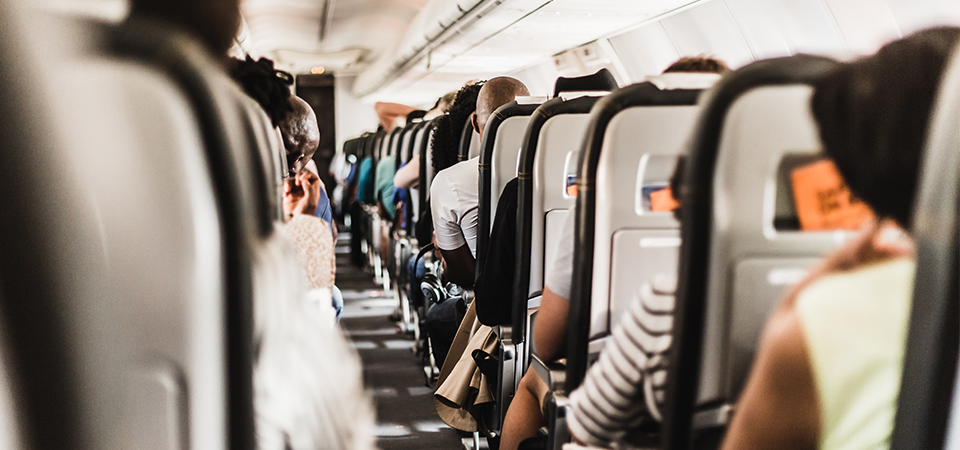Holiday Travel and Safety Tips

Stay put for the holidays.
Travel increases your risk of getting and spreading COVID-19.
Despite the disruptions, anxieties, and deferred or delayed plans, we have many things to be thankful for in this season. For most of us, that includes our families and/or friends. However, this holiday season we all need to balance the desire to see families and friends against the risk of exposing them to this potentially deadly and disabling virus. In fact, in recent weeks the CDC has warned that small to moderate family gatherings in household settings have been an important source in the continued spread of COVID-19.
The safest way to celebrate winter holidays is at home with the people who live with you. Travel and gatherings with family and friends who do not live with you can increase your chances of getting or spreading COVID-19 or the flu.
Centers for Disease Control and Prevention (CDC)
This holiday season, the Student Health Center (SHC) encourages you to give your friends and family the gift of helping to keep them safe by NOT traveling, especially for just a few days during Thanksgiving break. Instead, consider a virtual Thanksgiving event. If you do meet with friends or family ensure those outside of your current "household" are physically distanced, especially when dining, and include well-ventilated or outdoor space whenever possible.
On-Campus or Local Students
If you do plan to travel home whether or not you are planning on returning to campus, here are some additional important measures you can take to keep you, your friends, and your family safe this holiday season:
- If you are in quarantine or isolation at the time you are scheduled to depart from your local residence or campus dorm, delay leaving until you have been cleared for departure by the SHC or your local medical provider. Do not travel if ill, even if asymptomatic or if symptoms seem mild.
- "Know before you go" and consider getting a COVID-19 test prior to travel. However, you should note that a test only reflects one point in time. There can be false-negative results and, in some cases, the virus may be contracted during travel. A negative test is not a license to end other preventative measures such as mask-wearing and physical distancing. You can call the SHC at 310.506.4316 for an appointment for testing or for help identifying a local COVID-19 testing facility.
All Students
The SHC recommends that all students who choose to travel take the following actions at least two weeks prior to departure:
- Get an influenza vaccination if you have not already done so. If you have not, the vaccination is available at the SHC at no cost. Call 310.506.4316 for an appointment or for help identifying a local vaccination facility.
- Review the regulations governing travel to your destination. Some states require the completion of a traveler's form prior to arrival, along with specific restrictions and testing requirements after arrival.
- Minimize risk of exposure and infection during the weeks leading up to your departure. Any exposures could disrupt plans to go home. If you are ill, infected, or have recently been exposed to the virus you will not be allowed to board airplanes and trains. If you do so, you could be risking the lives of those you come into contact with, including your friends and family.
- Reduce the number of people with whom you have close contact prior to the trip. Any close interaction with persons outside your immediate household or residence hall roommates will present an opportunity for infection.
During Travel
- Reduce the number of stops on the trip. Take a direct flight if possible and, if driving, pack food and snacks for the car trip home.
- Delay travel if sick or exposed. Anyone feeling ill, recently diagnosed with COVID-19 (within 10 days), or exposed to someone with COVID-19 (within 14 days) should self-isolate and delay travel. Follow guidance from your health care provider regarding when recommended isolation/quarantine periods are complete and travel can be resumed.
- Take safety precautions during travel, especially if using public transportation. Wear a face covering at all times and consider also wearing a face shield. Stay at least 6 feet away from other people; if not possible on public transportation, sit as far away from other passengers as possible. Carry and use hand sanitizer containing at least 60% alcohol frequently.
- Use a disinfecting/sanitizing wipe to clean any touchable surfaces in the vehicle in which you are traveling. This includes planes, trains, and other forms of transportation.
- The least risky option is private transportation by yourself or your family members. If in a car with others outside the household, wear a mask and sit in the back seat if someone else is driving. If weather conditions permit, open the windows.
Upon Arriving at Home
- The most cautious approach upon arrival home is to quarantine for 14 days. This is especially important if there are vulnerable, higher-risk individuals living in the home. Quarantining in the home includes eating meals in a private space or outdoors with family at least six feet apart; using separate serving ware, utensils, glasses, and plates; using a separate bathroom from other family members (if not possible, disinfect the bathroom after each use); avoiding physical contact including hugging, kissing, and shaking hands; wearing a mask and maintaining a distance of at least six feet when in the presence of others; and restricting movement within and outside the home.
- If quarantine is not possible, stay physically distant from family household members, wear a face covering, and avoid close contact, including hugging, kissing, and shaking hands, for the first 14 days at home.
- Consider placing HEPA filter units in the home and opening windows to increase air circulation.
If you have any questions or concerns you can contact the Student Health Center at 310.506.4316, option 3.